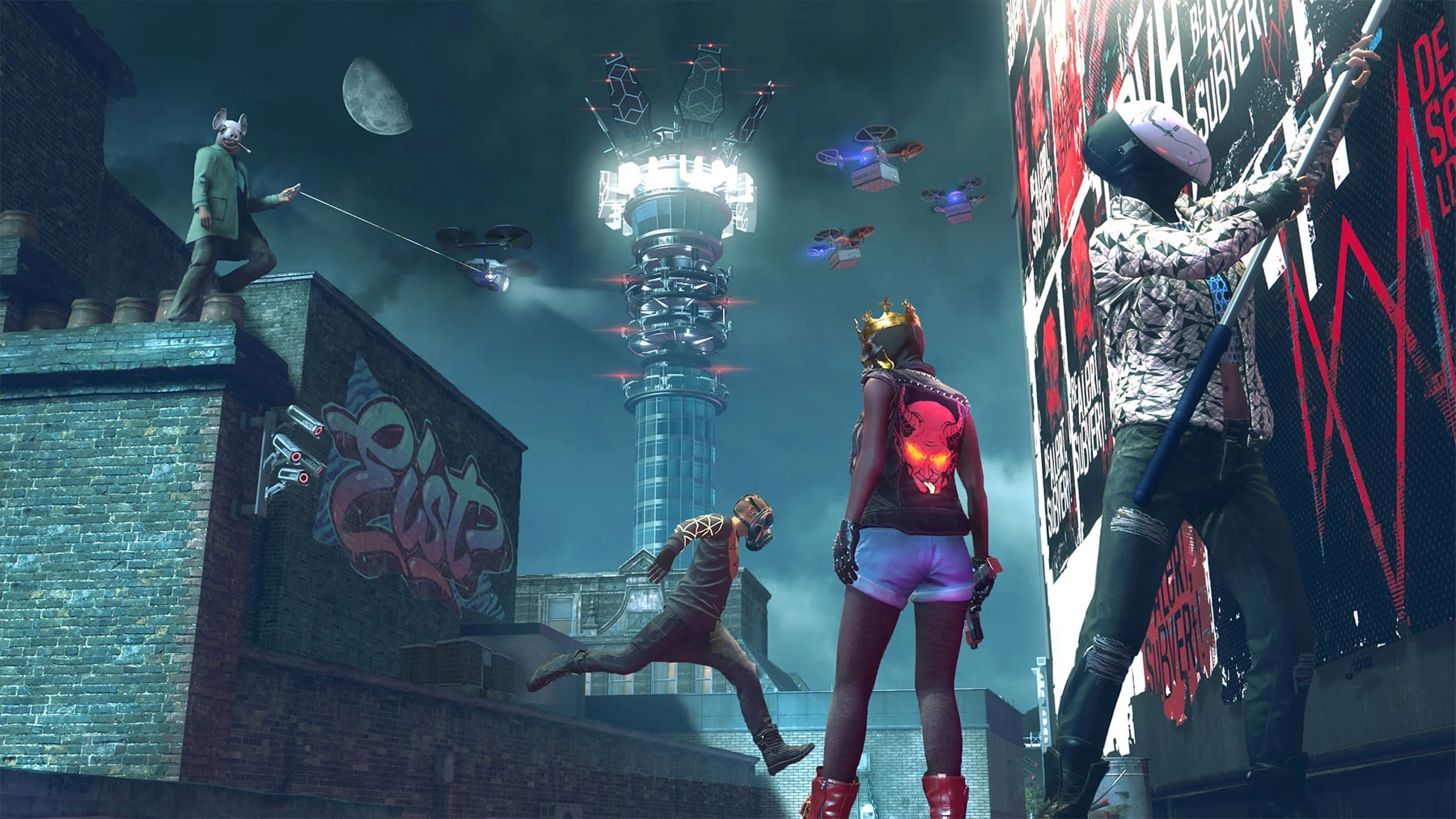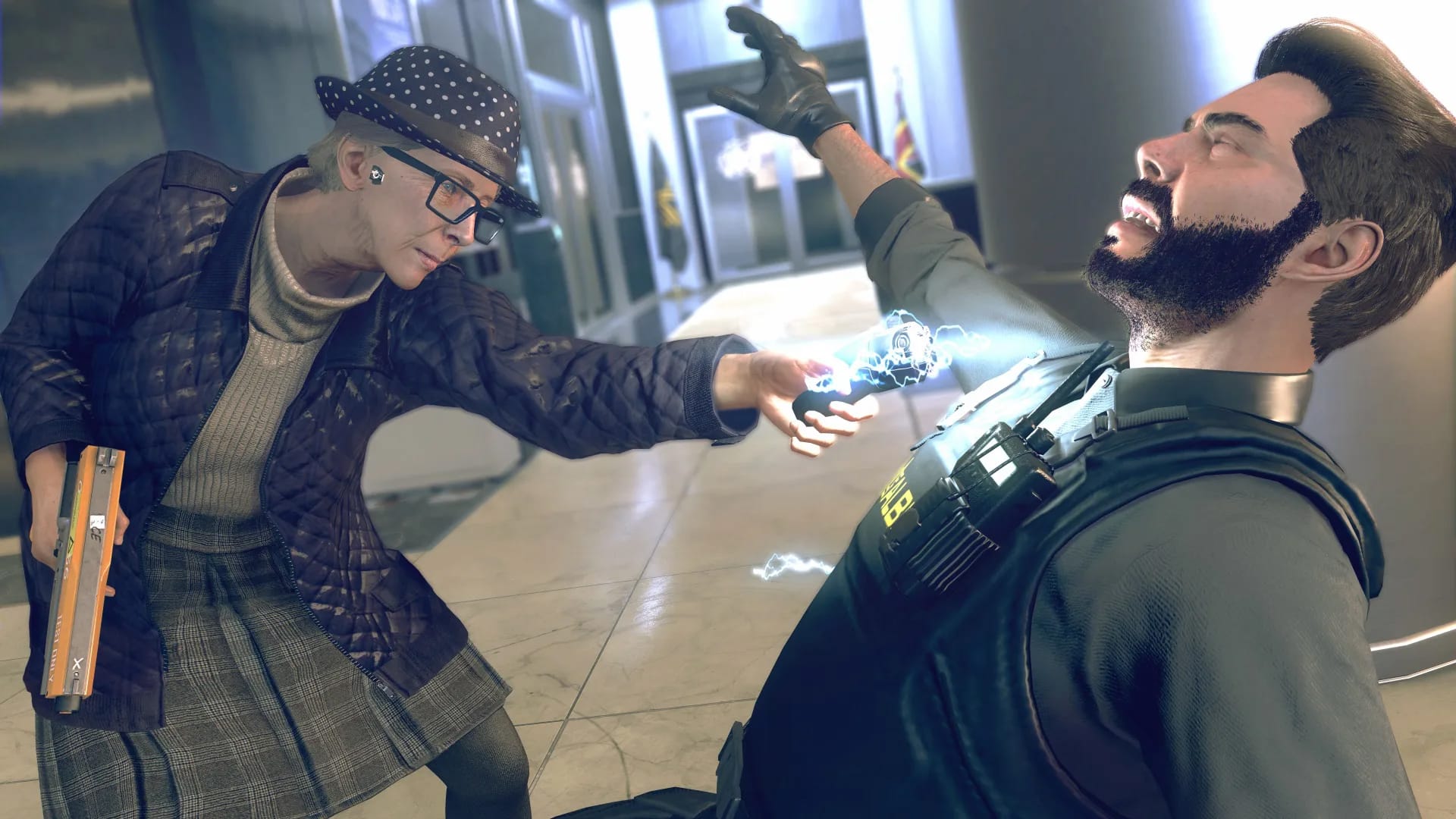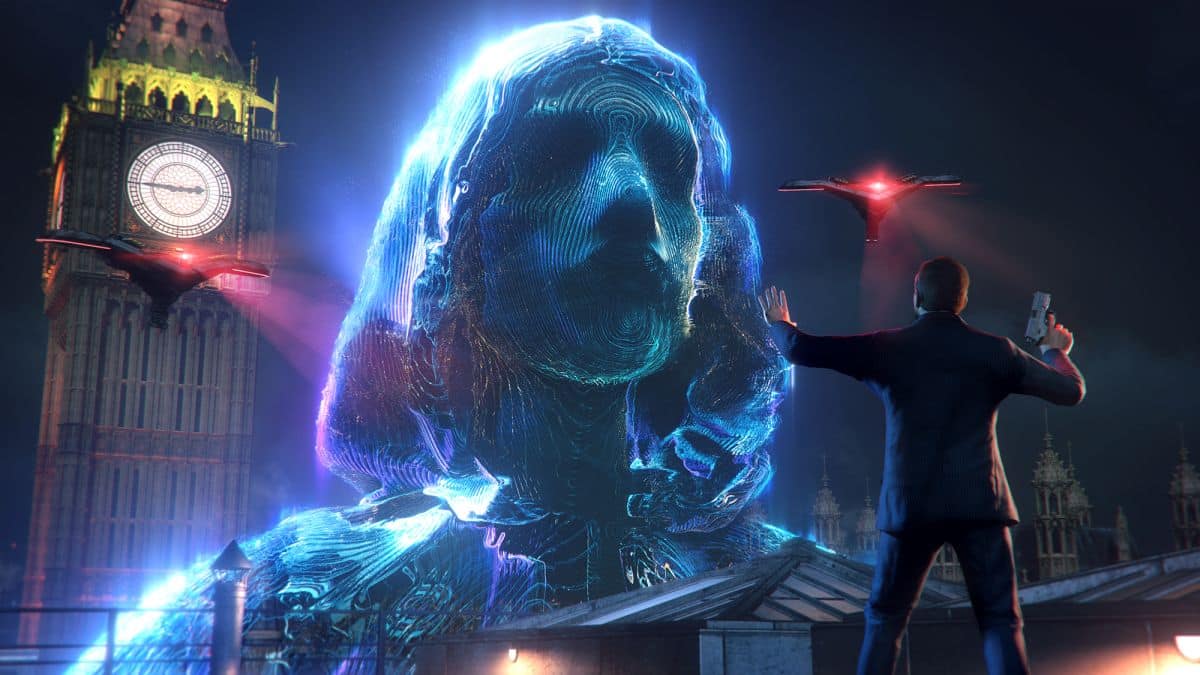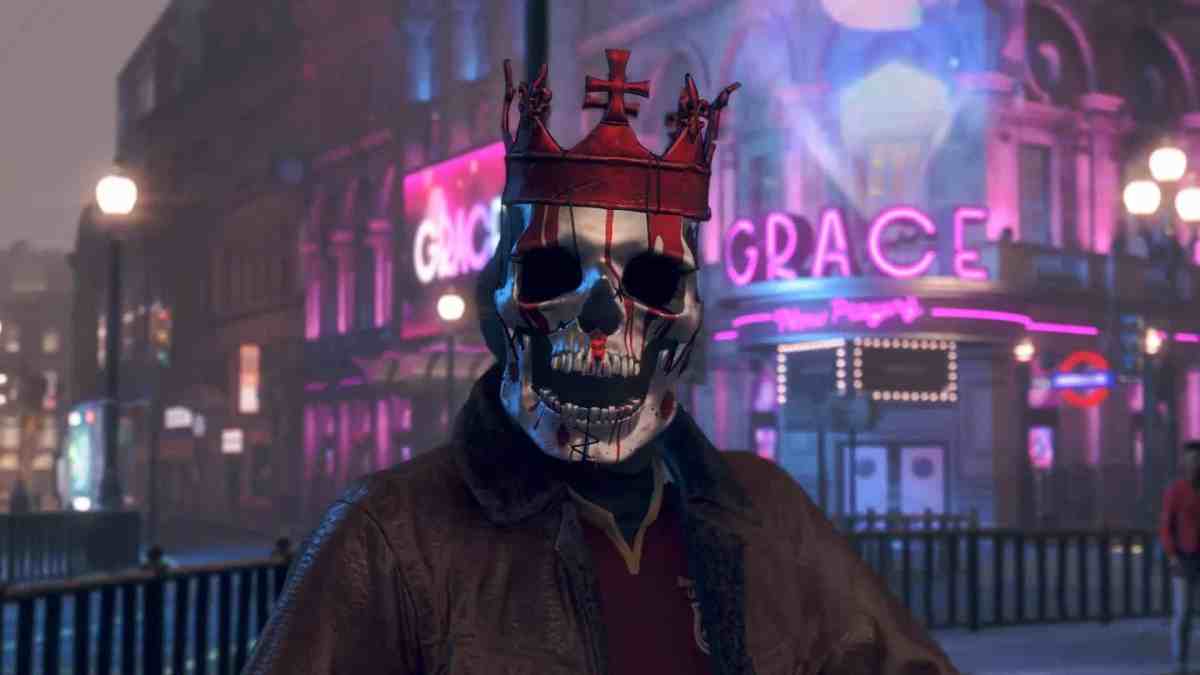You and me? We’re resources. Grist for the mill. Watch Dogs doesn’t want us to know that. It wants us to think that we have power and agency, even in a world where governments and corporations have unfettered access to every detail of our lives. The problem is that the Watch Dogs games – even Watch Dogs: Legion, with its vaunted “play as anyone” feature – cast us as people who exist outside the system. And even in doing so, the series reinforces the commodification of the individual that seems to inevitably lead to those oppressive social structures.
The fictionalized cities of the series extrapolate on the way digital technology is embedded in modern, everyday life. Like the best spec-fi, it allows us to consider and critique aspects of society through the lens of unreality. In this alternative world, governments and private enterprise have teamed up to create a system of panoptic surveillance. Through ctOS, the movement, pleasure, and business of every citizen can be traced and tracked. It’s Google Maps, social media, online banking, government services, and more – all working together in a system of digital omniscience.
More than half a century ago, Michel Foucault wrote that we live in carceral societies. The institutions of education, public health, justice, and welfare are panoptic, and we, as individuals, are embedded within them. Because they structure our lives, the systems determine what is acceptable and what is aberrant. Through the processes of registration and our willing (and sometimes unwilling or unknowing) engagement with these systems, they normalize behavior.
If anything, the digital revolution has amplified this capacity to control. Once-disparate systems can now be linked, and many people willingly advertise themselves through social media. We surrender our data, which is bought and traded, much the same as coal or iron ore. We are complicit in our own domination. The ctOS of Watch Dogs magnifies the real-world reliance on big data, even going so far as to predict crimes a la Minority Report. With all that in mind, the series is primed to offer a critique of digital capitalism and the power dynamics found within.
 The series approaches that with a dystopian lens. The ultimate goal of the corporations you oppose is always control. Whether through ideology or force, the “enemies” want the ability to manipulate the population. Power, centralized and weaponized.
The series approaches that with a dystopian lens. The ultimate goal of the corporations you oppose is always control. Whether through ideology or force, the “enemies” want the ability to manipulate the population. Power, centralized and weaponized.
With that perspective, it becomes easy to see Aiden Pearce and DedSec, the self-proclaimed watch dogs, as the plucky heroes seeking to restore justice to an unjust world. To that end, DedSec is ostensibly a leaderless collective. This setup is intended to make them relatable. DedSec could be your supermarket cashier; DedSec could be you. That is literalized in Watch Dogs: Legion. Therefore, the story is the very same one that Karl Marx and Friedrich Engels referred to in 1848 as “the history of all hitherto existing society”: class struggle.
However, unlike the serfs, the slaves, or the plebeians who fight for freedom, DedSec starts with freedom and seeks to give everyone else the same. The player characters are not subject to the strictures of daily routines. In Watch Dogs: Legion, I could take control of my construction workers, my transients, and my police officers at any time of the day or night; they never worked; they never slept. Those characters also show up on security footage as unidentifiable blurs, and when they attract a police response, escape is as simple as some deft driving or knocking out a few officers.
You could argue, of course, that those quirks are concessions to the nature of video games, and you’d be right. To portray such structural barriers accurately would result in a game that simply isn’t all that much fun. So, we suspend our disbelief about how easy it is to be a revolutionary in an environment where your very existence should be fraught.
But there’s a more significant ludonarrative issue here. DedSec’s goal is to prevent corporations from treating people like resources – and they achieve it by treating people like resources.

One of Aiden’s hacks is to skim money from bank accounts so that he can spend it on clothes and cars. And even though the first game shows how we can be tracked at the touch of a button, have our personalities laid bare through our browsing and buying habits, and be spied upon within the “security” of our own homes, it does the usual thing of suggesting through the story that only the powerful need worry about their secrets being leaked. For all the drama around Aiden’s corporate espionage, the game never really bothers to examine it as anything but stakes.
For much of Watch Dogs 2, DedSec’s primary goal was amassing followers so the organization could co-opt spare processing power from linked devices. For DedSec, people weren’t people; they were numbers. And their process for gaining followers was to fight propaganda with propaganda. Their objectives may have been noble, but the game refused to grapple with the means. They were using people in the name of saving them, and Orwell’s Animal Farm recently showed where that can easily lead.
And so we come to Watch Dogs: Legion. In literalizing the collective nature of DedSec, the game also literalizes the treatment of individuals as resources. The game wants you to collect people as you would trading cards.
While the mechanic was initially interesting, I grew to despise it. Yes, recruit anyone, but the recruitment missions quickly become repetitive and the novelty fades. I found myself shifting from wanting to recruit anyone who looked interesting to adopting a utilitarian approach. I wanted people who would help me, as the player, to progress through the game, rather than those more likely to benefit DedSec – Albion guards instead of paramedics, fighters rather than lawyers, getaway drivers instead of journalists. I also rejected out of hand anyone who was flatulent, had low mobility, or was flagged with other negative traits.

My recruitment decisions were not just selfish; they were discriminatory. Of course, I don’t need to grapple with that in any real way. This is fiction. I don’t need to feel bad about what I did or did not choose. Still…
I refuse to totally abrogate my responsibility, but to some extent, the game prompted those decisions with its combat and infiltration scenarios that demand stealth, physical strength, and guns. To combat a violent paramilitary corporation, DedSec had to be equally willing to use force to achieve its ends. That meant finding people who could use force. For all its posturing as a grand statement of communal effort, Watch Dogs: Legion asks players to assign value to characters based on their skills; it turns individuals into commodities. Anyone who can’t help the player in ludic terms is best left to their own devices. They will be rescued by the efforts of others in good time.
I hate this mechanic because the tedious nature of recruitment means that my DedSec is based on appraisals of characters’ ludic skill sets rather than their intrinsic value as humans. It is an uneven collective that is made up disproportionately of the powerful.
How then is DedSec better than Albion? The revolutionary may overcome the oppressor here, but the makeup of the former only reinforces the arbitrary ideological divide that pits you against me because our opinions differ. DedSec fights for justice, but justice is in the eye of the beholder. And the group, as a collective, can only ever end up at odds with itself. The game ends before it can examine that.
Perhaps I shouldn’t be surprised that Watch Dogs: Legion inadvertently promotes a bourgeois, capitalist ideal given the allegations of internal discrimination leveled against Ubisoft this year. At the same time, Clint Hocking and the Ubisoft Toronto team deserve praise for raising these issues in an unobtrusive way. In either case, I can only echo my colleague Marty Sliva in hoping the system can be refined for future games, though my hope is that it serves theme as much as player agency.







Published: Dec 23, 2020 01:00 pm